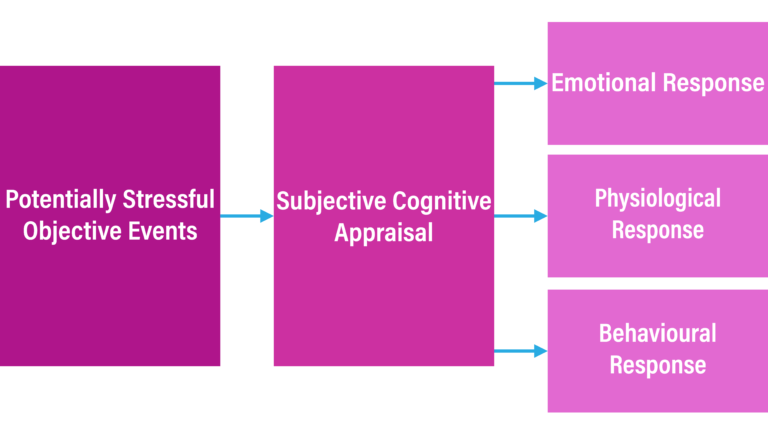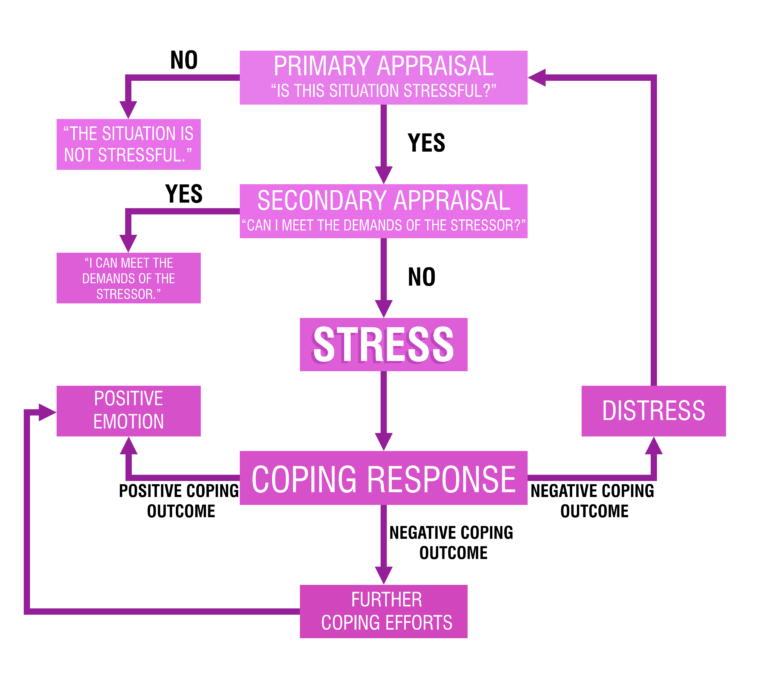Home / Healthcare & Medicine / Anxiety & Depression / Post-Traumatic Stress Disorder (PTSD) in the Global Context / Triggers and responses to stress
This article is from the free online
Post-Traumatic Stress Disorder (PTSD) in the Global Context


Reach your personal and professional goals
Unlock access to hundreds of expert online courses and degrees from top universities and educators to gain accredited qualifications and professional CV-building certificates.
Join over 18 million learners to launch, switch or build upon your career, all at your own pace, across a wide range of topic areas.


 There is a causal relationship starting from a potentially stressful objective event, which triggers a subjective cognitive appraisal, which leads to emotional responses, physiological responses and behavioural responses.
There is a causal relationship starting from a potentially stressful objective event, which triggers a subjective cognitive appraisal, which leads to emotional responses, physiological responses and behavioural responses.  The image shows a flowchart of the cognitive-transactional model of stress, as described above. Based on similar diagrams from Turner-Cobb and Hawken (2019) and Weesie (2017).
The image shows a flowchart of the cognitive-transactional model of stress, as described above. Based on similar diagrams from Turner-Cobb and Hawken (2019) and Weesie (2017). 





